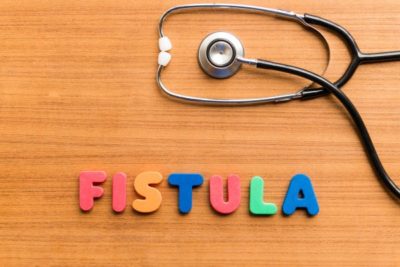No one really knows exactly what causes a Diverticulum to form. We do know a Diverticulum is generally defined as a pouch that forms on the large intestine adults. If you have more than one of these pouches, you have Diverticula.
Thus, Diverticula refers to plural or several Diverticulum. We blogged about them in our most recent article.

If your diverticulum begin to mutiny, turn to us at DDC Orlando for help!
We often hear about Diverticulum, Diverticula and specifically Diverticulitis. In fact these terms are so often bandied about, we knew you would want more information about these little pockets that form on the large intestine.
Let’s suppose, for the purpose of this blog, we could peek in at the diary, journal or ship’s log that told the story of the life of a Diverticulum. Would the diary record a smooth life or a rough and stormy one? Let’s take a look!
This is really Part II of our topic coverage, our diary, of Diverticulitis.
However, we won’t be speaking of the Dinosaur of that name, from last week’s case-study story. (We suggest you might like to read or review that story for background, before continuing with this article.)
Here at Digestive Disease Consultants in Orlando, we quite often inform patients about their diverticula. We also perform tests to discover if they are harmless pouches or pockets full of health trouble.
As you know from our previous blog, many adults have diverticula. They never know it and may never cause us a problem. They simply form on the lower bowel like little blisters, pockets or pouches. And we do not “feel” them, although we might feel symptoms from a problem they manifest.
Diverticulum: The Anatomy of the Pouch
If you or someone you love receives a diagnosis of Diverticulitis, you will want to know all you can about diverticula.

Doctor Explains Diverticulitis to Patient after Tests at DDC Orlando !
So, this is your diary of many ways diverticula live out their days.
1. The International Foundation for Functional Gastrointestinal Disorders states, “A true diverticula include all three layers of the gut; the lining mucosa, the muscularis, and the outer serosa. False diverticula are missing the muscularis and are therefore very thin walled. Colonic diverticula are typically false.”
We bring you the above anatomy lesson because we want you to comprehend the thinness of the walls of these pouches. Then you can understand how they can sometimes perforate and spill bacteria into the body cavity. That type of problem can make you very sick, as you will see when you read.
In diverticulitis, an inflamed and infected diverticulum transforms from a little harmless pocket into a little pouch of problems. Peritonitis can happen if the stool and infection is spilled out of one of these pouches and into the body cavity, triggering emergency surgery.
2. Diverticulum and the Influence of Geography, Culture and Diet
If you are an American or a live in a Western Culture, then by the age of 60, you probably have several of these pouches. Several diverticula seem to be an acquired condition of age.
It is true. We are all born without colonic diverticula, but many of us acquire them over a lifetime.
We also know that Americans, with their long held love of a meat-rich diet, have many more diverticula than their counterparts in vegetarian cultures and locations.
This statistic is often the basis of pursuing a high fiber diet in an effort to prevent diverticula from forming. The science behind this recommendation is largely unproven by significant studies. However, if you feel better on a high fiber diet, enjoy it with guidance from your doctor or nutritionist.
3. Diverticulum: Concern for the Cause
So what causes diverticula to form? Experts at the Mayo Clinic have explained the commonly accepted causes for the creation of a diverticulum. “Diverticula usually develop when naturally weak places in your colon give way under pressure. This causes marble-sized pouches to protrude through the colon wall.”
To put it more technically, According to the International Foundation For the Function of Gastronintestinal Disorders, “The common hypothesis is that relatively high pressures generated within the colon by muscular contractions force the inner mucosa to penetrate through the path of small blood vessels within the colon wall and to bulge beyond the serosa…”
The above information clarifies why, some severe cases can result in the symptom of rectal bleeding.
Still, these pockets might just swell gently on the large bowel and do absolutely nothing. However, “Diverticulitis occurs when diverticula tear, resulting in inflammation or infection or both.” (Remember those thin walls?)
Although unproven by extensive study, again we must mention that dietary fiber might play a significant roll. You see, scientists have conjectured, low dietary fiber “results in small stools and an undistended colon may generate more pressure within the colon.”
Just remember, these pouches are often discovered during a barium enema x-ray, a colonoscopy or a surgical procedure. They are insignificant if they do not become infected or inflamed.
4. Do They Hurt? Diverticula and Symptoms
You should be unaware of having diverticula. Although the mere growth and possession of them has a nice long medical name: diverticulosis. Pain does not typically generate from the mere existance of these pouches. However, there could be a co-exiting painful condition such as IBS or irritable bowel syndrome. Studies have shown that, yes, the two conditions can exist together, but one does not cause the other.
5. When A Diverticulum Goes Wrong!
Let’s look at four ways a harmless diverticula can wreak havoc upon an unsuspecting large intestine. Digestive Disease Consultants mentioned in our previous blog that complications of infection and inflammation in the pouch-like diverticula could lead to several very unhealthy conditions:
A. The Awful Abscess: Most people understand an abscess on the root of a tooth. They might not be aware that one could develop in the large intestine. Under conditions of inflammation and infection, feces and bacteria get packed into a diverticulum. This can create infection and pus in the pouch. An ugly abscess can form, and this can make you very ill.

A Fistula In the Lower Bowel Might Heal Without Surgery.
B. The Bad Blockage: A bowel obstruction could also result from the inflamed scarring of the involved diverticula or diverticulum. We invite you to check out the DDC blog article concerning the health risks of a bowel obstruction.
Furious Fistula
C. The Furious Fistula: Diverticula might grow and adhere with infection, in such a manner that it forms a “An abnormal passageway (fistula) between sections of bowel or the bowel and bladder,” or the bowel and the vagina. This is medically termed a “fistula.”
The Digestive Disease Consultants want you to know that fistulas are classified according to anatomic, physiologic, and etiologic classification. Some fistulas will close without surgical intervention. Careful diagnosis will prevent unnecessary surgery. If you have an intestinal fistula from diverticulitis, chances are, you will first be treated medically.
With good control of the infection and adequate nutrition, the fistula might stabilize. Thus, diet, bowel rest and antibiotics might help the fistula heal up spontaneously.
Sometimes, we cannot avoid surgery. Before your surgery, you will be stable, in positive nitrogen balance and your protein indexes will be normal. This healing process might take 3-6 weeks. Then, if all this conservative treatment has failed to work not, your doctor will probably recommend surgery.
D. The Perils of Peritonitis: Peritonitis can happen in the case of a rupturing of the diverticula.
In such a case, infection and feces can spill into the body cavity. This necessitates emergency surgery, just as in the case of Ashton’s Grandmother in our case study in the previous week. Her surgeons saved her life and created a temporary colostomy.
6. Take-aways from the Diverticula Diary
If your diverticula could keep a diary of daily activity, we would hope it would be a very simple, quiet one. They are simply “there,” bulging harmlessly off the large intestine, as a part of your age.

If your diverticulum begin to mutiny, turn to us at DDC Orlando for help!
We would see such a journal as more boring than the steady, routine log of a slow, average cruise ship.
It is true that diverticula can mutiny with inflammation and infection, pirating your good health. Diverticula can hold your digestive system hostage and make you experience pain and even bleeding.
However, the good news is that, even when the diagnosis is diverticulitis, the case does not always merit surgery.
Here at Digestive Disease Consultants in Orlando, we have defeated that popular myth many times.
Many diverticulitis patients, with or without surgery, see smooth sailing ahead. Proper diagnosis, consultation, testing and treatment for each patient’s individual case is the key.
